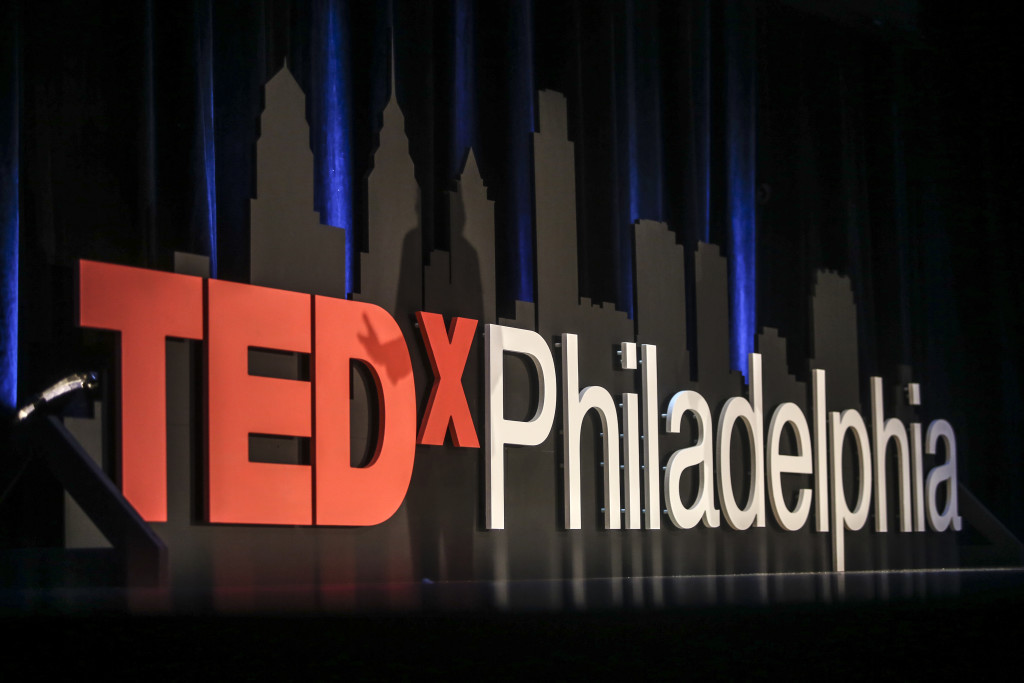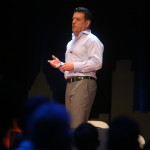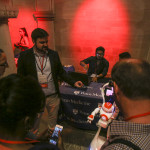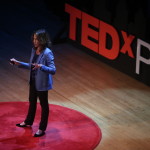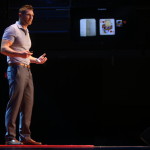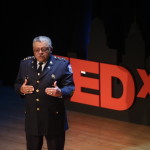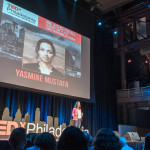TEDxPhiladelphia provides an opportunity to showcase our community’s most impactful ideas – a time for our city’s most polished and elite thinkers to be heard and their ideas to be reflected upon. TEDx Philadelphia 2015 was such an event that inspired us to make a difference in our community, no matter how small it may seem.
The sold-out conference brought people together for an inspiring day of talks on June 11, 2015 at the Temple Performing Arts Center, during which the public was invited to live stream the event online from anywhere in the world. Each of the 14 slated speakers shared their unique perspective on a topic related to the day’s theme, “And Justice For All.” Here are the lessons that inspired us most during this epic event:
1. Transcendence is possible
Jesse Krimes possesses three factors of privilege in America: he is white, college-educated, and male. Jesse is also a convicted felon. He spent almost six years in prison on nonviolent drug-related charges, yet during this time, he was able to transcend the darkness of his situation by producing beautiful works of art with few materials at his disposal. Krimes is an industrious individual who was able to reinvent himself and to turn his life and his situation around by thinking outside of the box.
Krimes’ work seems to explore the authenticity of the individual and the idea that society is, in it’s own way, a “macrocosm of incarceration.” He believes that with the rise of social media, the complexity of a person is reduced to surface judgements and shallow interactions. Life becomes a performance, and we lose our authenticity of self. During his talk, Krimes further explored how the surface appearance of an object can become the object itself with no real inspection of what lies beneath the surface. His artwork is currently on display at the Eastern State Penitentiary.
2. Listening can change your life
Ronnie Polaneczky of the Philadelphia Daily News once covered a story about a boy who was murdered. Not long after the piece ran, Ronnie received a hateful call from a mother whose son also suffered a violent death. The woman’s icy tone conveyed her revulsion for the media’s sensational coverage of this one particular incident when so many young men are killed in Philadelphia each year. Although Polaneczky’s first instinct was to defend her actions and protect her pride, she instead set aside her own judgments and feelings, and discovered the practice of “deliberate listening.”
Deliberate listening is a way of suspending your own emotions and judgments while listening intently to the person speaking with an open heart. It is one way you can drastically improve any relationship in your life – even when dealing with a complete stranger. Listening carefully to this distressed mother, Polaneczky began to realize that if she put aside her own urge to prove that she was right, she could hear through the woman’s anger to the pain that was there beneath the surface. In that instant, Polaneczky disarmed the woman by listening with compassion and without judgment. She now practices deliberate listening each day wherever possible. She has seen the immense benefits of genuine, deliberate listening both in her own life and in the lives of those with whom she comes into contact.
3. The bootstrap myth is a myth
We’ve all heard the phrase: “Lift yourself up by your bootstraps.” This Puritan-based metaphor illustrates the idea of a person who can lift himself out of a difficult situation using his own resources with no help from anyone. Unfortunately, this superpower isn’t based in reality, and Antonio Valdés knows that this way of thinking can have detrimental effects on those who aren’t able to better their own lives through hard work. While you may not fully grasp how calloused thinking like this is, first understand the repercussions of substantial trauma in early childhood.
Adverse childhood experiences (ACE) have a profound effect that can continue to negatively impact a person’s life for decades. Most people experience at least one ACE in their youth – such as neglect, abuse, violence or divorce – and these are in direct correlation with diseases, suicide, depression, violence, and an array of other severely negative outcomes. Those who are unable to lift themselves up out of their unfortunate circumstances are blamed for their own inability to correct their course, while inequitable attention is paid to the success of those who have had fewer obstacles to overcome in the first place. Surely there are exceptions, but they are just that; exceptions, and not the rule.
Luckily, there are protective factors that will allow people to succeed even if they have been exposed to numerous ACEs. The most important of these may be having one important, stable, loving adult relationship. Valdés hopes that society can begin to integrate protective factors into the fabric of our communities, and to remember that it takes just one positive adult relationship to transform the life of a child.
4. R2D2 is real
Stroke is the leading cause of adult disability in the United States, and Michelle Johnson is changing the way that stroke patients live their lives each day. When her grandmother suffered a stroke that left her partially paralyzed after years of a full and able life, Johnson was inspired to make a difference in the lives of stroke survivors. She started studying robots after a colleague told her about their astounding impact on the independence of people with spinal cord injuries.
Now, she has harnessed cutting-edge technology to make rehab robotics accessible, affordable, and effective for people all over the world. TEDx audiences had the pleasure of meeting Flo, a humanoid robot named after Johnson’s grandmother, that integrated R2D2-like assistance allowing for interaction with outside healthcare practitioners, task-oriented physical therapy, and companionship.
5. You are not defined by your circumstances
Yasmine Mustafa was born in Kuwait and is a refugee of the Persian Gulf War. When her family was migrated to the United States in 1991, however, they didn’t file the proper paperwork and consequently weren’t legal citizens. Then, her father abandoned his family and headed to Jordan with all of their family’s savings. Shortly after that, 9/11 struck. Mustafa was fired from her job, left unable to secure a decent replacement position, apply for a college scholarship, and support herself. Worse, she was stereotyped as a terrorist based on appearance alone.
Did she give up? No. She struggled to put herself through school by working under-the-table jobs that paid next to nothing, and, after seven and a half years, she finally graduated. Mustafa then went on to become a successful entrepreneur in an industry dominated by men, leading the Philadelphia chapter of Girl Develop It and creating her own line of wearable self-defense technology.
If you live a privileged life, you may not give much thought to the circumstances you were born into, but those who are born into “unsavory” circumstances must continually face how their birth lottery affects their opportunities, core identity, and social standing. Even after all of her struggles, Mustafa urges us not to allow our birth lottery ticket to define who we are or be an excuse for not reaching our fullest potential.
TEDxPhiladelphia provided an incredible landscape for discussion regarding social and political justice among persons of all minorities and walks of life. The talks from TEDxPhiladelphia 2015 will be published on their newly relaunched website shortly. Until then, follow along on Facebook, and Twitter and Instagram @TEDxPhilly to be the first to hear when they’re published!
*Philly PR Girl is a Proud Creative Partner of TEDxPhiladelphia*

